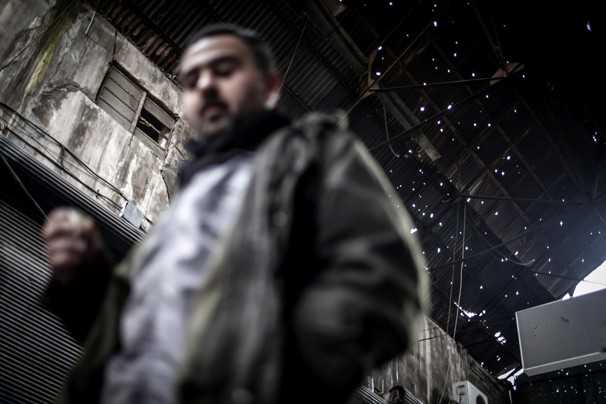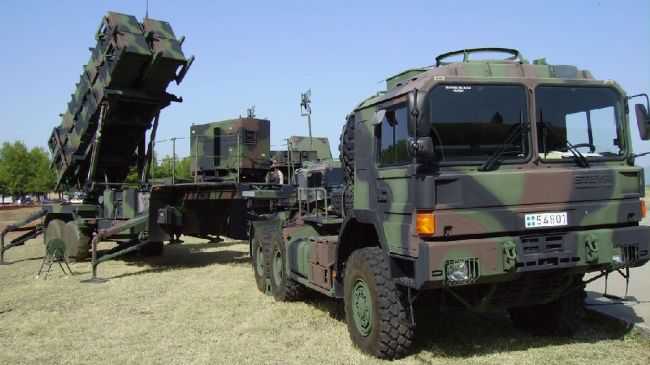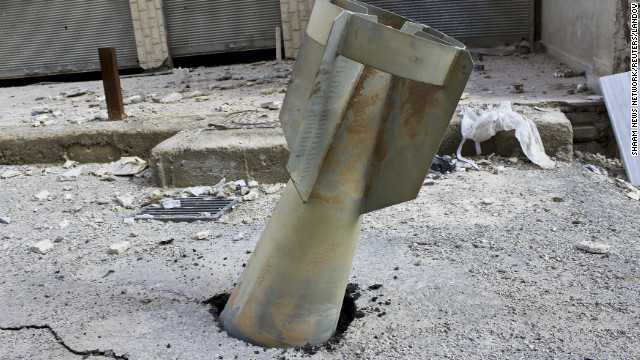
By Jenna Johnson, Published: January 7
“We don’t need this thing between us and our neighbors,” said Ali Yilmaz, 49, who works in a cellphone shop in this town, whose population is heavily Alawite, members of the same religious sect as Syrian President Bashar al-Assad. “It’s wrong. It’s only going to cause problems.”
Other Turks expect the missile-blasting defense system — organized and overseen by NATO after a request from the Turkish government last year — to protect them from projectiles that occasionally stray across the border or from a direct attack. But they question why the same level of protection isn’t being extended to those living inside Syria.
“A lot of children and women are getting killed,” said Mehmet Kamil Dervisoglu, 37, who works at a hotel in Reyhanli, a heavily Sunni town that is closer to the border and has become a “Little Syria” in recent months. “If we got involved, it would be an army against an army. But an army against women and children? What did these women and children do wrong?”
For now, about 400 U.S. troops are being airlifted from Oklahoma to Incirlik Air Base in southern Turkey. The first wave of troops and supplies arrived Friday, with more scheduled to come in the following days, according to the U.S. European Command.
Eventually, the troops will man two Patriot batteries in Gaziantep, a Turkish town about 30 miles from the border. Germany and the Netherlands also will supply two batteries each, to be stationed in other towns along the border.
The batteries are designed to spot and intercept incoming missiles. Once in place this month, all six will operate under NATO command. The mission is “defensive only” and aims to deter threats to Turkey and de-escalate the fighting along the border, NATO spokeswoman Oana Lungescu said last month. It is not known how long the batteries will remain.
‘It’s a strong shield’
For Turks living close to the border, the sounds of war have become part of life. Those living in Hacipasa — a village of about 3,000 people that shares its olive-grove-dotted valley with Syria — frequently hear the heavy whirl of aircraft and whiz of mortar shells and missiles. Sometimes they feel the faint reverberations from the impacts. After heavy attacks, some residents venture to the river along the border to help wounded Syrians escaping to Turkey for medical treatment.
One morning in October, a stray missile landed in a field where villagers had just finished picking cotton, said Abdulaziz Olmez, a grocery shop owner with a bushy mustache who has lived here his whole life.
“We are afraid that they might come closer,” he said. “You might have a pilot who doesn’t know where he’s going or a strong wind.”
Olmez, 46, said he has become more relaxed since hearing that the Patriot batteries were on their way. He said he hopes their presence will result in fewer attacks on Syrian towns just across the river.
“It’s a strong shield,” he said.
Business has dried up since the uprising began nearly 22 months ago, Olmez said, and hundreds of longtime residents were forced to move. They were replaced by hundreds of Syrian refugees in need of shelter, winter clothing and food.
Two Syrian men who moved to Hacipasa two months ago stopped by Olmez’s shop on Saturday afternoon to buy flour and olive oil. The potential danger in Turkey is nothing compared with what Syrians face, they said.
“The Americans, by doing this, they are protecting the Turkish villages,” said one of the men, who did not want to be identified. “But for the Syrian villages, they are doing nothing.”
‘I don’t see a need for it’
Farther from the border, in Antakya, there is widespread criticism of the Patriot batteries. The town has a large Alawite population, and there are frequent rallies in support of the Syrian government. On Sunday afternoon, many residents said they wanted peace and stability in Syria, not a revolution. Some worry that planting foreign troops on the border is a step toward a broader war, and they question why the Turkish military needs help.
“They’re claiming it’s for defense reasons, but I don’t see a need for it,” said Cemil Yuce, 60, at his restaurant. “I don’t think anything will happen, that any missiles will come over from Syria. Nothing will happen.”
Ihsan Birim, who owns a shop that sells CDs, said the economic consequences of the Syrian uprising have hurt Turkey more than stray missiles. His business is half what it was before the revolt began in 2011, he said. Money is tight, especially with two sons in college, and the family eats chicken instead of red meat. Birim, 53, said he wants this to be over.
As for the Patriot batteries, he said: “If it’s for defense purposes, that’s okay. But if it is to attack Syria, we don’t want it. We don’t want war. People are very afraid of war.”





